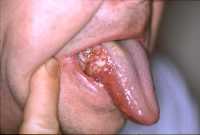Author Interviews, Orthopedics, Radiology, Rheumatology, UCSF, Weight Research / 18.11.2020
Knee Arthritis: Study Compares Effects of Elliptical Training vs Racket Sports
MedicalResearch.com Interview with:
Silvia Schirò MD
Department of Radiology and Biomedical Imaging
University of California, San Francisco
MedicalResearch.com: What is the background for this study?
Response: Knee osteoarthritis (OA) is worldwide the second most frequent cause of lower extremity disability, and it has a global incidence of 199 cases per 100.000, including over 14 million people with symptomatic knee OA in the US. Overweight and obese individuals have a higher incidence of knee OA due to excessive knee joint load. The association between physical activity and knee OA, has not been systematically addressed in overweight and/or obese subjects and its association seems to be controversial. On the one hand, mild to non-weight-bearing physical activities have been found to be beneficial in the management knee homeostasis, the physiologic knee joint load providing an optimized environment for the joint tissues. On the other hand, excessive fast-paced physical activity with high load-joint torsion such as racquet sports, ball sports and running have been found to have an increased incidence of knee injury compared to mild-moderate exercise such as swimming, bicycling and low-impact aerobics independent of body weight.
(more…)


